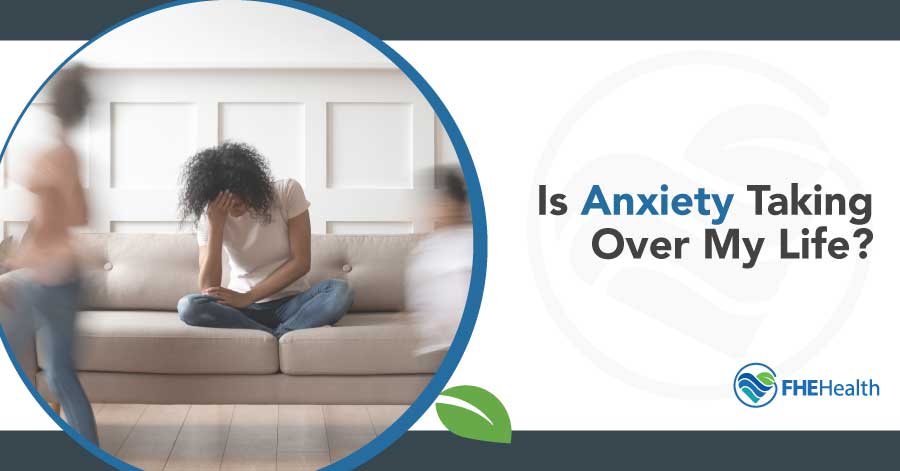
Everyone feels anxious from time to time, and this emotion can actually be a good thing when it lets you know when something is wrong and needs to be addressed. However, for those who suffer from chronic anxiety or anxiety disorders, it can be a constant way of life that interferes with relationships and daily activities and makes it almost impossible to live a normal life. Take this quiz below to find out if you may be suffering from anxiety, and then learn what anxiety is and what treatment options are available.
Quiz: Is Anxiety Taking Over My Life?
What Is Anxiety?
Merriam Webster defines anxiety as “apprehensive uneasiness or nervousness usually over an impending or anticipated ill: a state of being anxious.” However, when applied to a medical diagnosis, this is much more intense and is defined as “an abnormal and overwhelming sense of apprehension and fear often marked by physical signs (such as tension, sweating and increased pulse rate), by doubt concerning the reality and nature of the threat and by self-doubt about one’s capacity to cope with it.”
There are several types of anxiety disorders, including:
- Panic disorder, which is characterized by panic attacks
- Generalized anxiety disorder, which involves a general feeling of anxiety and fear that isn’t directly related to any one situation or fear
- Phobia-related disorders, in which the person has a specific fear that causes them anxiety
Other common mental health conditions, such as obsessive-compulsive disorder and PTSD, are anxiety-related.
What Are the Long-Term Effects of Stress?
Under normal circumstances, experiencing anxiety would notify your body that you are in danger or that something is wrong. Your body then starts to reroute blood and change breathing patterns as your fight-or-flight instinct is triggered. If you were facing danger, this would enable you to think more clearly in the moment and run further or faster than normal. However, those with anxiety disorders or experiencing panic attacks feel this way even when there is no danger.
This response from your body is designed for short-term, occasional occurrences, and when your body lives in a fight-or-flight state long-term, it can cause problems. Just a few of the long-term effects of stress include:
- Other mental health disorders, such as depression or substance abuse issues
- Weight gain or loss
- Increased risk of cardiovascular disease, stroke and heart attack
- Breakouts or dry skin
- Hair loss or brittleness
- Gastrointestinal problems, including heartburn, ulcers and IBS
When your body is experiencing feelings of stress and showing those effects, it’s important to pay attention. This is your body’s attempt to tell you something is wrong, and if you ignore it, it can lead to more long-term health problems. The longer you live with anxiety, intrusive thoughts and the negative behaviors and coping patterns used to deal with it, the harder it can be to learn new, healthy tools and techniques. If you’re experiencing anxiety, get help sooner rather than later.
Is Anxiety Treatable?
Yes, absolutely. Anxiety that’s interfering with your life is treatable and not something you should just have to live with. Anxiety is a normal emotion, and it’s not something you can get rid of completely, but you can learn how to better understand what is triggering your anxiety and learn new coping strategies on how to stop intrusive thoughts and move toward a healthier, more fulfilling life.
If you or someone you love may be suffering from an anxiety disorder, there is help. At FHE Health, we have a team of specialists who can accurately diagnose anxiety disorders and start giving you the tools to fight back. For more information on our programs and how we can help, contact us today by calling (833) 596-3502 to speak to one of our team members.






